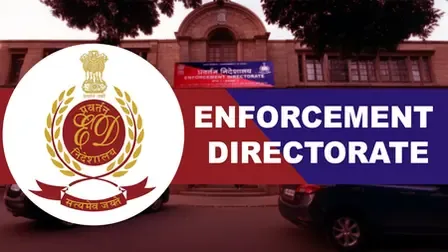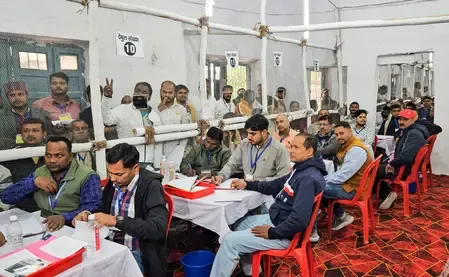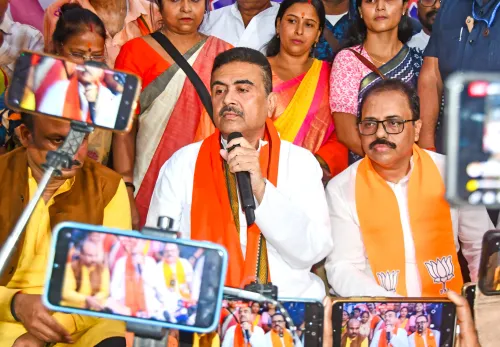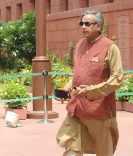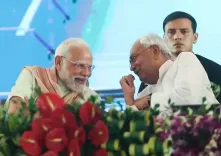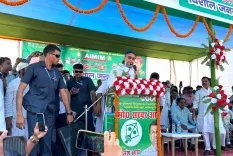Is Rahul Gandhi the Most Consistent Loser in Elections?
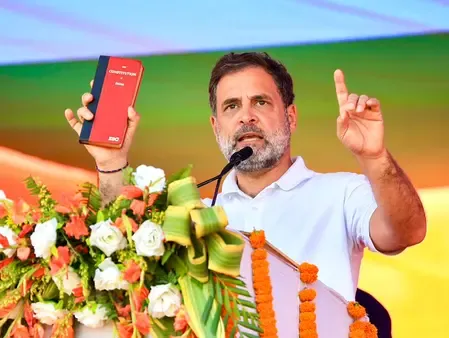
Synopsis
Key Takeaways
- Rahul Gandhi has now faced 95 electoral defeats.
- The Congress party's internal criticism is growing.
- Organizational weaknesses are a key issue for the Congress party.
- The NDA is positioned for a landslide victory in Bihar.
- Nikhil Kumar has called for strategic improvements within the party.
New Delhi, Nov 14 (NationPress) The BJP's IT cell Chief, Amit Malviya, launched a pointed criticism at Congress leader Rahul Gandhi as preliminary results from the Bihar Assembly elections suggested a troubling outcome for the historic party and its coalition partners.
In response to the unfolding results, Malviya tweeted on X, “Rahul Gandhi! Another election, another loss! If there were accolades for electoral persistence, he would take them home. At this pace, even failures must be scratching their heads wondering how he manages to encounter them so consistently.”
He went on to state that Rahul Gandhi has now amassed an astonishing 95 defeats for his party.
“While many might label him a 9-to-5 blame-game politician, Rahul Gandhi has racked up 95 electoral losses over the span of two decades, just five shy of a century. Is his criticism of India's institutions merely a tactic to divert attention?” Malviya pondered.
Accompanying his remarks were visuals of state elections depicting when and where the Congress party faced losses after Rahul Gandhi engaged in electoral politics.
As per the Election Commission, the Congress party, which contested 60 seats, was only leading in four districts. The larger Mahagathbandhan, which includes the RJD, VIP, and Left factions, seems poised for one of its most disappointing electoral performances in the region.
With Bihar's 243 Assembly seats at stake, the NDA is set for a sweeping victory, with the BJP ahead in 89 constituencies and its ally JD(U) leading in 79 as of around 1 p.m.
The Congress party’s underwhelming performance has sparked criticism internally. Senior leader and former Governor Nikhil Kumar criticized the party’s election readiness, organizational framework, and candidate selection.
“This showcases the frailty of our organization,” he remarked, emphasizing that a political party's success heavily depends on its organizational effectiveness. “Without a robust organization, effective functioning is compromised, leading to poor results.”
Kumar pointed out that insufficient groundwork and flawed strategies have further hindered the party’s prospects. He noted that although the candidates selected were competent, “even better choices could have been made,” advocating for a more strategic and intelligent organizational approach with a strong foothold in each constituency.
He also pointed out internal coordination failures and a lack of inclusivity in the decision-making process. He claimed that many deserving candidates were overlooked in favor of “less capable” ones, a decision he believes significantly compromised the party’s competitiveness in key regions.


